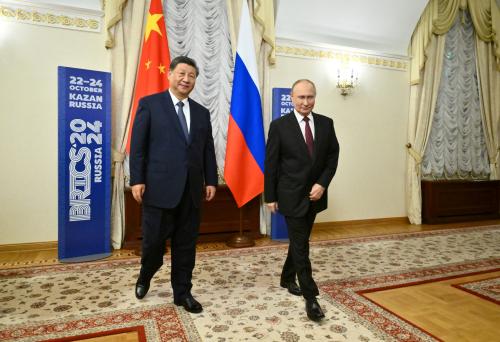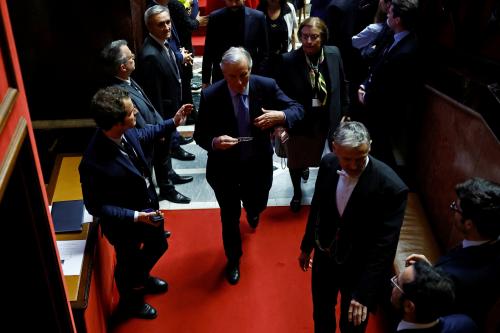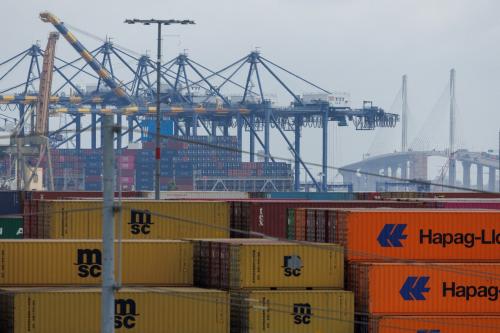It is no secret that the success of the current stepped up military effort and operation in Afghanistan ultimately depends on Pakistan. The Obama administration realized this point long ago when it called its strategy “AF-PAK” in order to underline the fact that Afghanistan and Pakistan are part of the same problem.
A favorite joke in Washington is that the strategy should have been called PAK-PAK because the real stakes behind Afghanistan are really almost totally related to Pakistan. This is not surprising. Whenever the American people question the logic of their country’s involvement in Afghanistan, they are told that failure in Afghanistan would mean “losing Pakistan.” Needless to say, this would be a much more daunting strategic failure because of Pakistan’s nuclear weapons.
An Islamic regime in Pakistan which could unleash regional and international mayhem is the ultimate nightmare in Washington. This is perhaps why the arrest of the Afghan Taliban’s military chief, Mollah Baradar, in the Pakistani city of Karachi was heralded by American media as a very encouraging sign. More than anything else, this development showed that Pakistan’s army and intelligence is now fully on board with effort to contain the Taliban in Afghanistan.
Washington understands that success in Afghanistan will be determined in the southern Pashtun belt on the border with Pakistan and that NATO forces desperately need the cooperation of Pakistan’s army to achieve that. Without Pakistan’s help, it would be impossible to fight the Taliban and al-Qaeda effectively. This is also perhaps why Turkey’s contribution to the war effort is analyzed by criteria other than a mere contribution of troops.
To be sure, Washington would welcome more Turkish troops in Afghanistan. But what makes a Turkish contribution more valuable is its “soft power” in both Afghanistan and Pakistan. This is something that secularist hard-liners do not like to hear, but such power is essentially rooted in Turkey’s Muslim identity and particularly the Islamic roots of the current government in Turkey. For instance, the Financial Times reported last week that “NATO officials also often talk of a fuller engagement with Pakistan by using member Turkey, a Muslim majority state, and its diplomats as facilitators in Islamabad.”
Turkey is probably the best envoy the West can find to talk to Pakistan about the need to change its old habits of using Islamist ideology and loyalty to militant group such as the Taliban in order to exert influence over Afghanistan. No doubt, this is easier said than done. But there are some signs that Islamabad is slowly realizing that the Afghan Taliban, the Pakistani Taliban and militant groups sponsored and abetted to strike at arch-rival India (such as Lashkar-e-Taiba, which was behind last year’s Mumbai terrorist attacks) are all part of the same threat. Further evidence that the strategy is working is the capture on Pakistani soil of Mollah Baradar. After decades of supporting Islamist groups in neighboring India and Afghanistan, this is the first major sign that there may be a change of heart in Pakistan. After all, the Taliban was in some measure a creation of Pakistan as it sought to expand its influence into Afghanistan at the end of the Cold War.
Yet the real test is what happens next. Will Pakistan’s army and civil society maintain its efforts against radical Islamist militants? Or will it opt to use these recent arrests to sway off pressure from the international community? Much will be determined by how the Pakistani Taliban and other radical extremist networks react. Terrorist attacks within Pakistan itself may sap the will of the army and internal intelligence to dismantle their networks. It would also be prudent not to read too much into the arrest of one individual such as Mollah Baradar. The leadership of such movements has a remarkable ability to recreate itself, as we have seen in the case of Pakistani Taliban leader Baitullah Mehsud’s quick replacement by Hakimullah Mehsud.
At the end of the day, what both Afghanistan and Pakistan need is better governance. This requires not only security and stability but also some modicum of economic development with jobs and services. This is another area where Turkey’s soft power comes into play. Most analysts agree that Turkish companies and construction firms are the first to take serious risks in the region in order to improve infrastructure projects. Only time will tell if such efforts will contribute to long-term success in the AF-PAK strategy of the West. For now, what we have is “cautious optimism.”
The Brookings Institution is committed to quality, independence, and impact.
We are supported by a diverse array of funders. In line with our values and policies, each Brookings publication represents the sole views of its author(s).



Commentary
Op-edCautious Optimism in Afghanistan
February 22, 2010